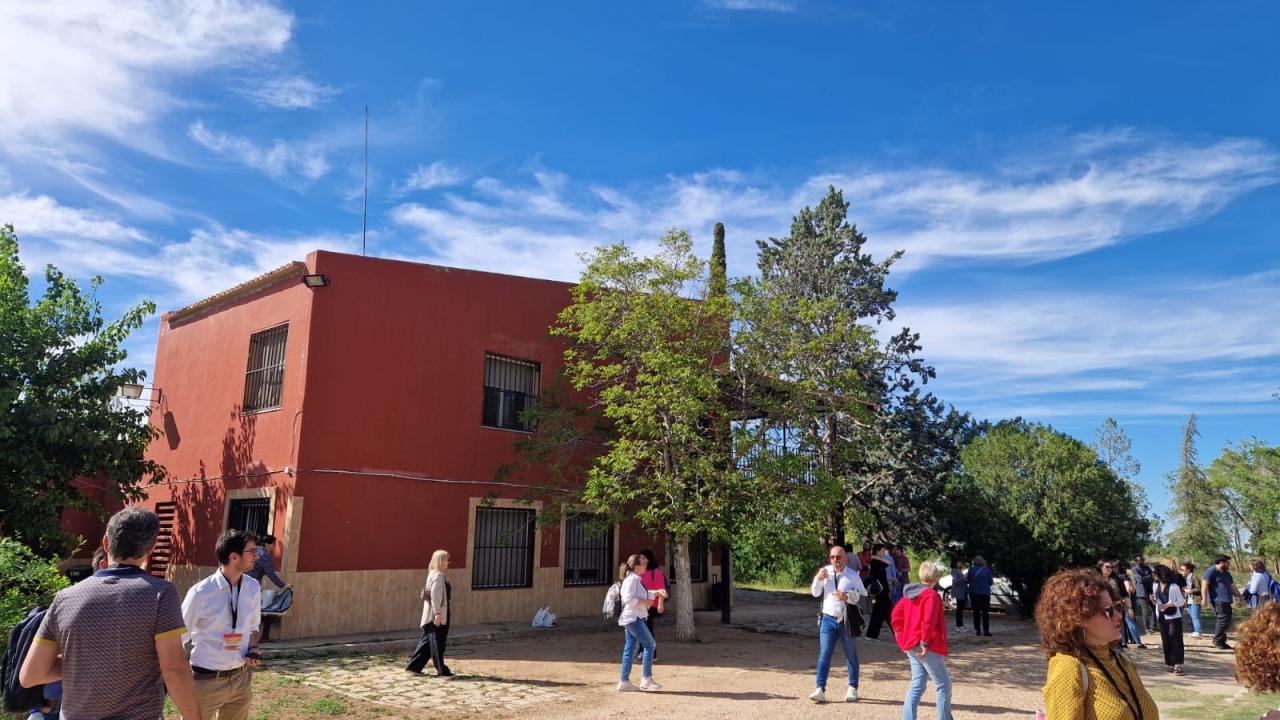Challenges and Priorities in European Housing: A WELDI Perspective
Public investment in housing has declined over the past decades. This decline, combined with global issues like the financialization of housing and the rise of tourist rental platforms, has led to a severe shortage of affordable housing in European urban centers. Newcomers face many challenges due to this shortage, such as financial difficulties, information gaps, discriminatory practices, and residency status complications. Even in cities like Seine-Saint-Denis and Utrecht, where public housing sectors are relatively strong, the waiting periods for accessing such accommodations can stretch to a staggering ten years. In Liège, despite the existence of 100,000 social housing units, a substantial 40,000 households are still on the waiting list.
Recognizing the critical importance of adequate housing, WELDI's partners have prioritized it as a key issue. Mayor Manuel Serrano of Albacete aptly pointed out this key issue, emphasizing housing as a fundamental human right that resonates with all. Access to suitable housing is not merely a matter of comfort; it is a cornerstone for stability, security, and social integration, particularly for migrants. Decent housing provides a foundation for newcomers to establish themselves in their adopted communities, pursue opportunities for employment and education, and engage meaningfully with society.
Moreover, affordable housing fosters inclusivity and cohesion by facilitating interactions among individuals from diverse backgrounds, thereby enriching community life. Addressing the housing needs of migrants requires a concerted effort to dismantle systemic barriers and implement policies that prioritize equitable access to housing for all residents, regardless of origin or status. By ensuring access to decent housing, we not only uphold the dignity and rights of migrants but also foster resilient, vibrant, and inclusive societies where everyone has the opportunity to thrive.
Housing for seasonal workers, a long date issue for Albacete
Housing for seasonal workers has been a historical challenge in Albacete, located in a major agricultural area of Spain. The city sees a population surge between May and October due to high labor demand, primarily from migrants.
To address the housing needs of temporary residents, the municipality has launched various initiatives, including shelters for homeless and temporary migrants. For example, the "Seminary" building, funded by the city in collaboration with Caritas, provides accommodation for migrants as well as additional services such as meals and assistance in finding a job.
WELDI partners had the opportunity to visit El Pasico, a migrant shelter run by ACAIM and Médicos Mundi Sur, which serves as a crucial resource for young newcomer, many of whom are undocumented, providing basic housing and support such as career counseling and language training. This is significant, as formal employment and training opportunities play a key role in the regularization process in Spain through a procedure known as "arraigo" ("rooting").
To find a quick solution, some migrants use the services of "intermediarios," informal mafia-like networks, to obtain employment and housing in exchange for a fee paid by workers. Efforts are underway to combat this exploitation. Albacete has approved a project for a new reception center to accommodate 100 people and provide support through the city’s technical inclusion team and NGOs. This initiative, integrated into the WELDI Action Plan, aims to provide guidance on the rights and services available, preventing newcomers from falling prey to these parallel exploitation services.
Albacete's Integrated Solutions: Tackling Shanty Towns and Empowering Vulnerable Communities
Albacete is also facing the challenges of shanty towns and vulnerable migrants and has therefore implemented innovative strategies to address these pressing issues. Since their emergence, shanty towns have caused complex social and infrastructural dilemmas. These settlements, inhabited by diverse communities including Roma families and African migrant workers, lack basic resources such as electricity and water. In response, the municipality of Albacete has developed an integrated support model in collaboration with the city’s Technical Team for Social Inclusion, alongside NGOs. This networked approach involves monthly meetings where stakeholders collectively assess and address the needs of individual clients. Central to this model is a housing-first strategy, demonstrated by the temporary re-housing of families in emergency flats provided by the city, free of rent or charges.
This solution is followed by in-depth interviews with residents to identify their specific needs, ranging from documentation and health care to educational opportunities. However, Albacete's current capacity for emergency housing remains limited, with only six units available. To meet the growing demand, the city plans to construct 30 prefabricated dwellings on municipal land at the outskirts, providing more sustainable housing solutions for vulnerable families.
Albacete's efforts extend beyond housing to support for vulnerable migrants. Led by the Technical Inclusion Team (ETI), this initiative offers a holistic approach to social inclusion, regardless of migrants' legal status. The ETI operates in collaboration with NGOs, covering social work, education, training, legal advice, and access to decent housing. Legal support is particularly important for migrants seeking residency status and employment opportunities, with close coordination with governmental agencies. Outreach workers engaging with marginalized communities are crucial, using phone interpretation services to bridge language barriers and ensure effective communication.
Albacete's multifaceted approach to addressing shanty towns and supporting vulnerable populations serves as a testament to the city's commitment to social justice and inclusive urban development. Through collaborative efforts and innovative solutions, Albacete strives to create a more equitable and dignified living environment for all residents.

